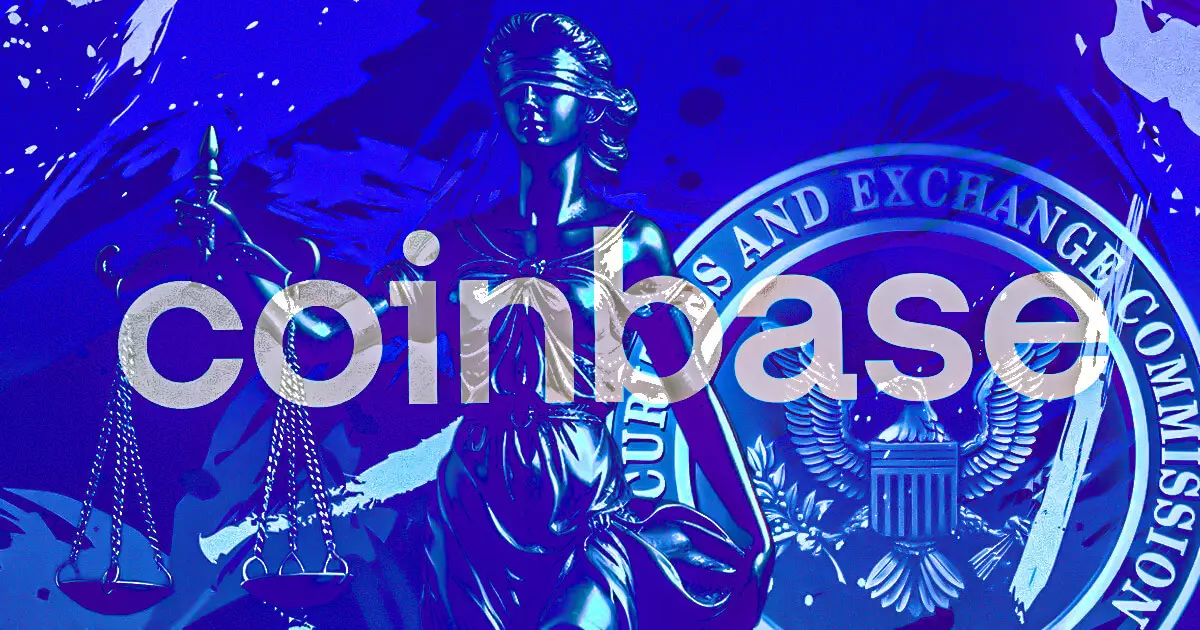In a significant turning point within the cryptocurrency landscape, Coinbase has struck a deal with the staff of the Securities and Exchange Commission (SEC) to dismiss its pending enforcement case, which paves the way for greater stability in the market. This development not only sees Bitcoin surge back over the $99,000 mark but also signals a potential shift in the ongoing debate around regulatory oversight of digital assets. The deal followed a lengthy legal struggle that highlighted fundamental questions regarding the regulatory authority of the SEC in relation to cryptocurrency classification.
The discord between Coinbase and the SEC began when the latter sought to compel the delisting of certain digital assets that Coinbase argued were not securities. Coinbase CEO Brian Armstrong criticized this move as an overreach of the SEC’s regulatory powers. According to him, the legal battle exemplifies the need for established industry standards rather than ambiguous regulatory interpretations. This sentiment underscores a broader concern among many in the cryptocurrency field: the necessity of clear guidelines that delineate the status and treatment of various digital assets under existing financial laws.
In his public statements, Armstrong expressed confidence that the case would be formally dismissed once the Commission approves the settlement. He emphasized that the proposed resolution entails no fines or alterations to Coinbase’s business operations, a scenario favorable for the company. Such an outcome not only alleviates immediate legal burdens but also sends a robust message about the treatment of cryptocurrency regulations in the United States.
The implications of this settlement extend beyond Coinbase itself, feeding into a larger narrative about the dynamic relationship between regulators and burgeoning technologies. For Armstrong and others in the crypto space, this legal resolution serves as validation of their strategy to challenge regulatory overreach. It also raises critical perspectives on how the SEC’s actions can influence market innovation and investor protection.
Armstrong’s remarks on social media highlighted the need for legal backing to serve as a precedent for future interactions between remaining crypto companies and regulatory bodies. In a noteworthy mention, he attributed some of the progress made in crypto regulation to the broader political shifts, signaling that changes in administrative power can yield significant effects on regulatory practices.
The Path Forward for Cryptocurrency Regulation
While this recent settlement does not erase all uncertainties in the realm of cryptocurrency, it acts as a crucial indicator of potentially evolving enforcement practices. The agreement could very well lead to heightened legislative efforts aimed at clarifying regulatory frameworks, which many in the industry argue is vital for fostering innovation alongside effective investor safeguards. Such clarity is vital for both market participants and regulators as they navigate a complex and rapidly evolving digital asset space.
As stakeholders, including policymakers and investors, reflect on the implications of this settlement, it serves as a reminder of the intricate cognitive dance that must occur between regulation and innovation. The Coinbase case, emblematic of the wider challenges faced by the crypto industry, highlights the necessity for coherent regulatory guidelines that recognize the unique attributes of digital assets while ensuring consumer protection.
The resolution of the enforcement case against Coinbase may well set a new standard for how similar disputes are handled in the future. The importance of establishing a clear, legally supported framework for cryptocurrencies cannot be overstated, especially as market participation escalates and new assets continue to emerge. As legal battles materialize, the maintaining of an open dialogue between regulators and industry representatives will be critical for striking a balance between safeguarding investors and promoting a climate conducive to innovation.
As the dust settles on this landmark development, the ramifications of Coinbase’s settlement with the SEC create a pathway for potential regulatory reform and the establishment of stronger legal standards within the digital asset ecosystem. This case could indeed influence future legal interpretations and the very foundation upon which the burgeoning industry operates, marking a pivotal moment in the quest for clarity and fairness in cryptocurrency regulation.

